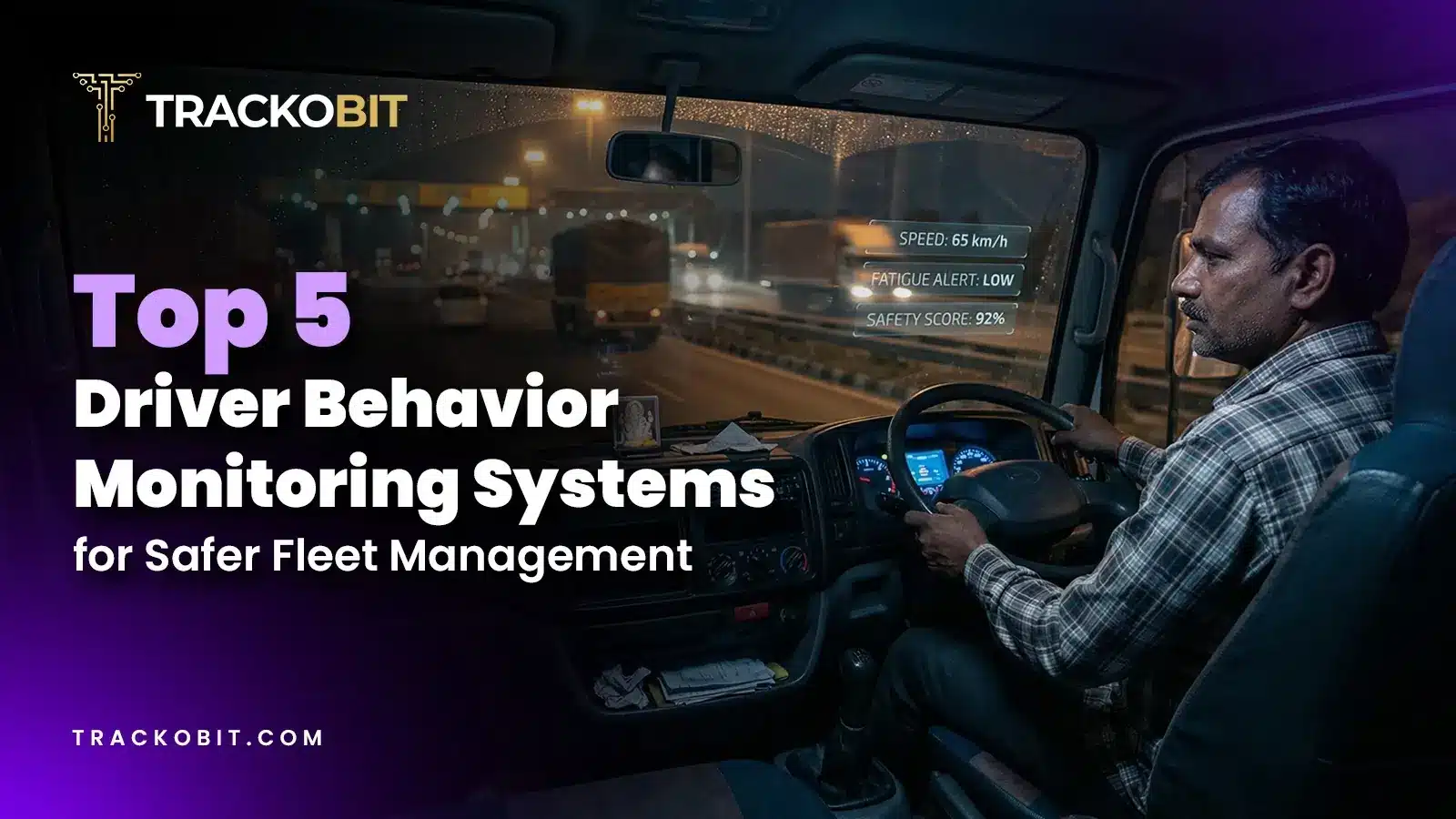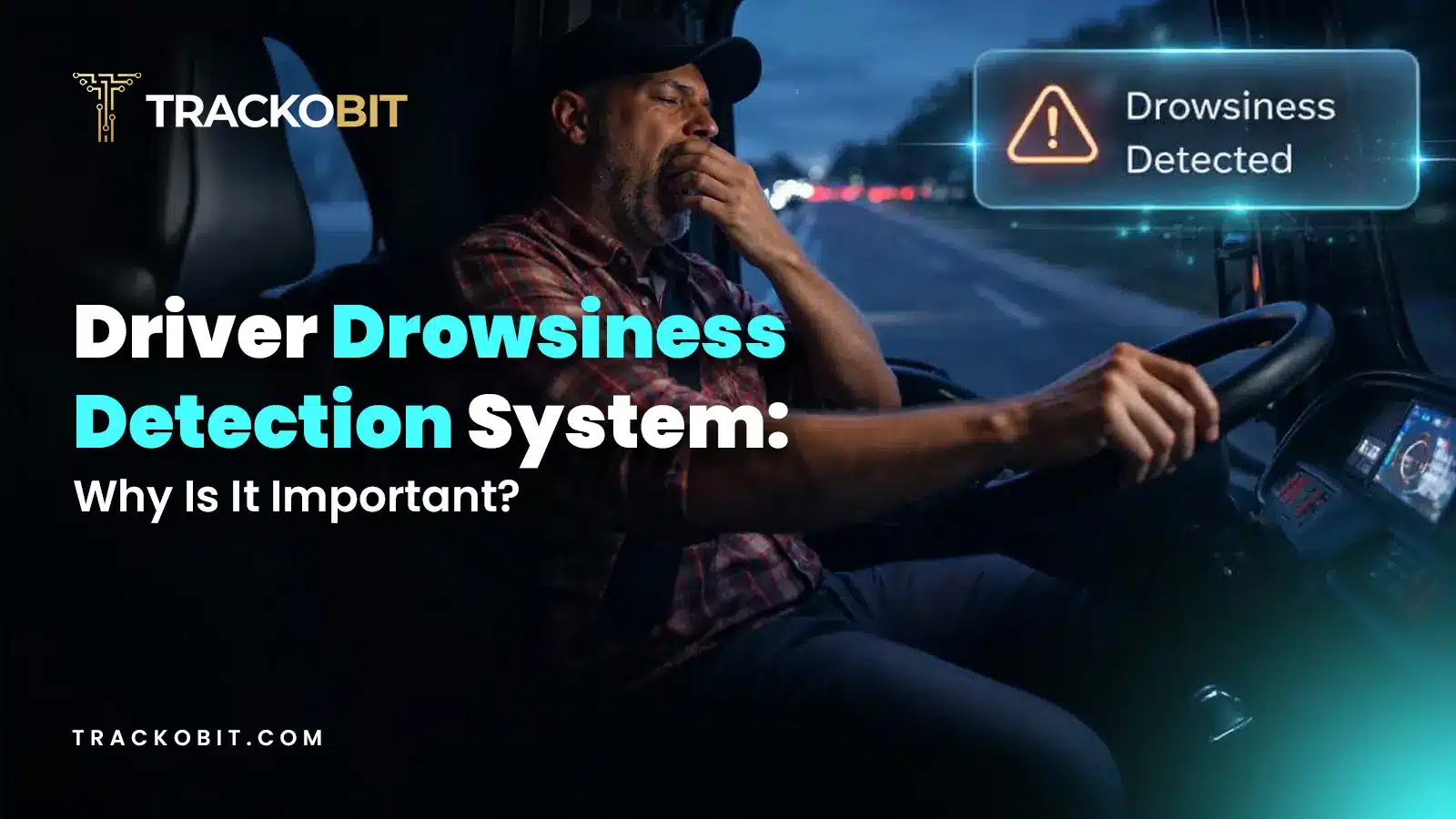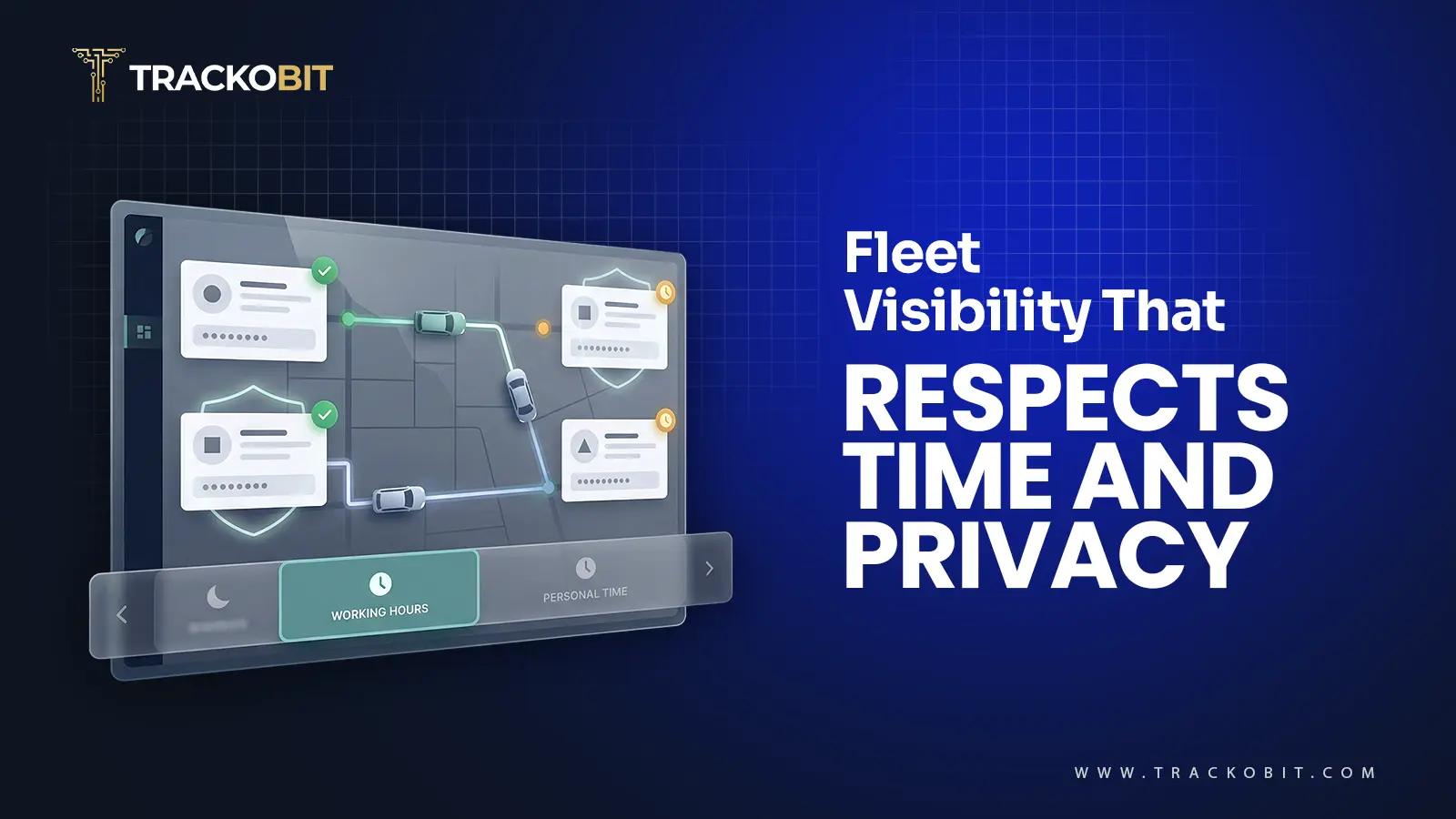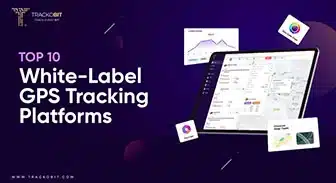-
TrackoBit
Manage commercial vehicles with the new-age Fleet Management Software
TrackoBit -
TrackoField
Streamline your scattered workforce with Field Force Management Software
TrackoField -
Features Resources
-
Blog
Carefully curated articles to update you on industrial trends. -
White Paper
Insightful papers and analysis on essential subject matters. -
Glossary
Explore an alphabetical list of relevant industry terms. -
What’s New
Get TrackoBit & TrackoField monthly updates here. -
Case Study
Explore the cases we solved with our diverse solutions. -
Comparisons
Compare platforms, features, and pricing to find your best fit.
-
About Us
Get to know TrackoBit: our team, ethos, values, and vision. -
Careers
Join the most dynamic cult of coders, creatives and changemakers. -
Tech Support
Learn about our technical support team and services in detail. -
Events
Check out the exhibitions where we left our marks and conquered. -
Contact Us
Connect with us and let us know how we can be of service.
6 Types of Vehicle GPS Trackers – For Fast & Accurate Tracking
- Author:Nandita Gupta
- Read Time:7 min
- Published:
- Last Update: August 22, 2024
Table of Contents
ToggleHere are the top 6 GPS trackers that help ensure real-time visibility and safety of the fleet with precision and accuracy.
Table of Contents
Toggle
Imagine a fleet full of costly consignments doesn’t arrive at the client site. Or the cargo you wanted to arrive on-time, got delayed by hours. Can you imagine the costs and time you now have to bear?
In such light, it’s important to pick the best vehicle GPS trackers that do their job with quick data transmission rate, updating time and affordable costs.
Here, in the following, let’s discuss 6 types of vehicle GPS trackers that are in demand for a reason. Find that reason now!
Read Blog – 7 Best GPS Route Planning Software
Vehicle GPS Trackers – What are They?
Vehicle GPS trackers are devices that are often mounted on vehicle to trace:
- Real-time location
- Speed
- Routes taken
- Overall mileage
The trackers help enhance visibility, security, efficiency, and keep up with maintenance of vehicles.
But when it comes to selecting the best vehicle GPS trackers to integrate in the vehicle, you will find several options penetrating the market. Let’s explore common GPS trackers types for vehicles you must get next!
![]()
6 Types of Vehicle GPS Trackers
Ensuring Vehicle Security…
Here are popular types of vehicle GPS trackers available in the market, each designed with specific features and functionalities.
1. Plug-and-Play GPS Trackers
![]()
These GPS trackers are easy to plug directly into a vehicle’s OBD-II port, typically located under the dashboard. These kinds are simple to use and don’t require professional installation.
They are hardwired to ignition, power and ground and have the following advantages:
| Features | Explanation |
| Real-time Tracking | These GPS trackers provide real-time information about the vehicle’s:
and other relevant data suitable for real-time visibility and monitoring of vehicles. |
| Easy Installation | These trackers are quite easy to install and don’t require technical know-how. They are easy to attach to the OBD-II port or a power outlet. |
| Quick Setup and Activation | After installation, they get activated almost quickly. instantly. There’s no lengthy configuration process, making them very user-friendly. |
| Portability | They are easily portable. Meaning, they can be easily removed and added in another vehicle. Offers great convenience and flexibility along the way. |
2. Hardwired GPS Trackers
Hardwired GPS vehicle trackers are one of the great devices to track business fleet vehicles and are installed straight into the vehicle’s electrical system. In comparison to plug-and-play devices, they are more discreet as they are placed under the vehicle’s bonnet — which is often out of sight and unreachable for common operators. Thus, they require professional help for installation.
3. Battery-Powered GPS Trackers
Battery powered GPS trackers are operated via a battery power and are easy to place and use anywhere in a vehicle. These trackers are easy to toss and move along with the vehicles but may require periodic recharging or battery replacement.
💡How Much Does Battery Powered GPS Trackers Lasts?
|
4. Active GPS Trackers
Active GPS trackers utilize real-time satellite technology to relay locational data, making super easy to track vehicles or assets of choice. These devices provide immediate locational updates across web or mobile devices when connected to GPS tracking software solutions.
Just like other GPS types, these ones too help fetch real-time tracking the movement, speed and routes of the vehicles. And once added with powerful GPS tracking software, these active trackers help provide instant alerts and geofences to safeguard the vehicle/asset.
Downsides of Using Active GPS Trackers
- Can be relatively expensive due to subscription costs.
- They require a power source, which means they need regular charging or access to a power supply.
5. Passive GPS Trackers
Passive GPS trackers are one of the cost-effective solutions, they store location data internally. However, the data is retrieved only when the device is accessed and processed on computing devices, physically.
It comes with a few downsides! You cannot use it for real-time asset tracking, but it’s a great option when you require historical route analysis for industries like logistics or research and development.
They need constant retrieval for download, which can cause heavy data gaps. Plus, unlike other active trackers, they don’t provide immediate alerts or live tracking. Not a good option when you require quick responses.
![]()
6. Asset GPS Trackers
Asset trackers are portable hardwired units. They are most suitable for any small to high-value assets. You will find them in various forms such as AVL trackers, OBD GPS trackers, personal trackers or even as Pet GPS trackers.
The asset trackers are suitable to mount across various non-moving assets like trailers, heavy equipment, containers and so on. They offer real-time location data, which aids in theft prevention when clubbed with asset tracking software — fostering efficient asset management across any XYZ industry.
These asset trackers have long-battery life and temperature-proof rugged design — able to withstand harsh conditions.
Read Blog – What is Asset Tracking? Benefits & How it Works?
Popular Industries that Use Vehicle GPS Tracking Software
GPS tracking is useful for every industry that involves the use of vehicles, assets, employees, consignment or equipment to make safe and timely deliveries. Here are some industries other than logistics, delivery or regular FMCG that need GPS trackers types for vehicles.
-
Trucking Industry
Travelling between regions, states to deliver consignment is an indispensable part of the trucking industry. The trips last upto days. The use of GPS tracking helps ensure the vehicle’s real-time location, ensure the driver is driving within the preferred speed limit, choosing acceptable routes, and delivering on time.
-
Oil and Gas Industry
Oil and gas industries often deal with transferring of delicate, inflammable or explosive materials. They need to monitor the equipment properly to ensure safety at the site. This is where GPS vehicle trackers help the best. Also, the chances of theft are higher in the case of the oil industry which can be deterred through real time GPS tracking, geofencing and route deviation alerts.
-
Construction and Mining Industry
Construction and mining industry involves the use of multiple and costly heavy equipment. With rising cases of stolen equipment and vehicles losing their way into the mining site, the need to mount GPS tracking devices emerged.
Read Blog – What is consignment and asset tracking?
Here’s Your Final Takeaway!
Irrespective of the types of vehicle GPS trackers penetrating the market, it’s a must to ensure that you pick the sought-after one. The one that fits your budget, purpose, and scope and adds to your asset’s or vehicle’s safety.
If you are a fleet manager with 1000s of fleet, choosing just GPS vehicle trackers won’t suffice your needs. GPS tracker alone is weak. But when combined with GPS tracking software like TrackoBit it becomes a force to reckon with. Our solutions are compatible with GPS trackers that a market has to offer.
Ready to walk a seamless path to efficient tracking and management of the fleet?
![]()
Most Trending Posts
- How Does MR Reporting Software Work?
- What is the Travelling Salesman Problem? Why is it a nightmare for delivery businesses?
- How Pharmaceutical Companies Ensure Drug Safety with Cold Chain Monitoring?
FAQs on Types of Vehicle GPS Trackers
-
What are vehicle GPS trackers?
Vehicle GPS trackers are hardware devices that are mounted on the vehicle’s dashboard or across its electric system to help track the vehicle’s: 1. Real-time locational information 2. Speed 3. Routes taken 4. Mileage All just to provide real-time visibility into the vehicle’s current whereabouts and operational efficiency.
-
How long battery powered GPS trackers last?
Battery-powered GPS trackers can last anywhere from a few days to quite a few months. The exhaustion of the battery depends on factors like: 1. The frequency at which they update or transmit data 2. Quality of the battery 3. Power saving modes
-
What are GPS tracker types for the vehicle?
There are mainly three types of vehicle GPS trackers: 1. Plug and play GPS vehicle trackers 2. Hardwired GPS trackers 3. Battery-operated GPS trackers 4. Active GPS hardware devices 5. Passive GPS hardware devices
-
Who should use vehicle tracking devices?
Vehicle tracking device is suitable to use for any logistics, delivery, trucking or supply chain company — looking to optimise or safeguard its fleet management.
Nandita is the Team Lead for Content Marketing at TrackoBit, bringing over a decade of experience in B2B, B2C, and IoT sectors. She has a proven track record of helping Read More
Related Blogs
-

5 Best Driver Behavior Monitoring Systems for 2026
Tithi Agarwal February 23, 2026Having the best driver behavior monitoring system is a necessity as it helps you ensure driver safety and optimize operational…
-

Why is Driver Drowsiness Detection System Important for Fleet Management?
Shemanti Ghosh February 4, 2026A driver drowsiness detection system is critical for fleet management. It helps prevent fatigue-related accidents and reduces operational risks through…
-

When Tracking Needs a Clock: Rethinking Fleet Visibility
Tithi Agarwal December 24, 2025Read on to understand why fleet tracking works better when it follows working hours. Because visibility should support operations, not…
-

What Makes TrackoBit’s Video Telematics Software Truly Next-Gen?
Shemanti Ghosh December 17, 2025TrackoBit’s video telematics software blends smart video intelligence with full server control. The result? Superior fleet reliability and safety.

Subscribe for weekly tips to optimize your fleet’s potential!
Your inbox awaits a welcome email. Stay tuned for the latest blog updates & expert insights.
"While you're here, dive into some more reads or grab quick bites from our social platforms!"Stay Updated on tech, telematics and mobility. Don't miss out on the latest in the industry.
We use cookies to enhance and personalize your browsing experience. By continuing to use our website, you agree to our Privacy Policy.




































